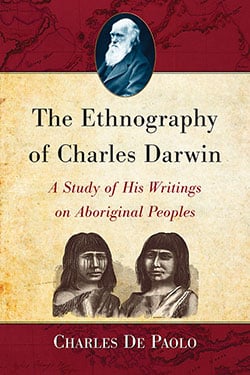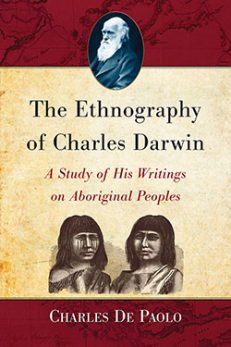The Ethnography of Charles Darwin
A Study of His Writings on Aboriginal Peoples
$49.95
In stock
About the Book
Because of his stature as one of the great minds of the nineteenth century, Darwin and his work have been examined from almost every conceivable angle. This has led to much critical disagreement on his thoughts regarding the dignity of man, particularly of aboriginal peoples. This book attempts to reconcile the prevailing dual visions of Darwin—as racist and as humanitarian. By consolidating Darwin’s fragmentary ethnographic writings, the text charts his switch from early resignation regarding the victimization of native tribes to advocacy for their plight. While recognizing the differences between modern Europeans and primitive communities, Darwin developed a firm belief in the dignity of man and ultimately viewed the exploitation of aboriginal peoples as morally indefensible.
About the Author(s)
Bibliographic Details
Charles De Paolo
Format: softcover (6 x 9)
Pages: 216
Bibliographic Info: bibliography, index
Copyright Date: 2010
pISBN: 978-0-7864-4877-7
Imprint: McFarland
Table of Contents
Introduction 1
Abbreviations 15
Part I. Precursors and Analogues
1. Humboldt’s Critical Ethnology 17
2. Malthus’ Theological Demography 29
3. King and FitzRoy in Tierra del Fuego 39
Part II. A Voyage to Humanity
4. Slavery in South America 61
5. FitzRoy and Darwin in Tierra del Fuego 79
6. The “Barbarians” of Argentina 97
7. “The Mysterious Agency”: Darwin in the South Seas 112
8. The Making of Humboldt’s Ethnology 135
Part III. The Post-Voyage Ethnology
9. Allied Kingdoms, 1836 to 1870 141
10. Natural Selection: The Bio-Ethical Dilemma 163
11. Transportation and Census 178
12. Descent as Synthesis 187
Works Cited 197
Index 205
Book Reviews & Awards
“recommended”—Choice.





